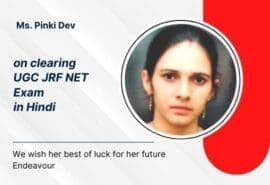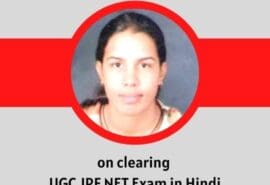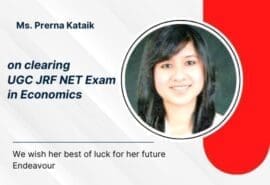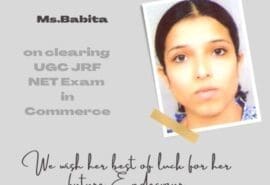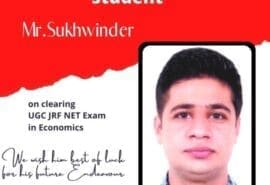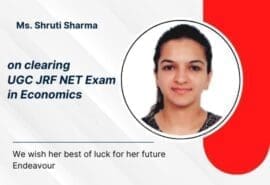
Detailed Information about NTA UGC JRF NET Economics Coaching in Chandigarh
Detailed Information about NTA UGC JRF NET Economics Coaching in Chandigarh
The National Eligibility Test (NET), also known as NTA-UGC-NET or UGC NET, is conducted by the National Testing Agency (NTA) on behalf of the University Grants Commission (UGC) in India.
It determines eligibility for lectureships and the Junior Research Fellowship (JRF) award to Indian nationals to ensure minimum standards for entrants in the teaching profession and research.
The UGC NET exam for Economics aims to assess candidates' teaching and research capabilities in Economics.
It tests their in-depth understanding of microeconomics, macroeconomics, public economics, international economics, statistical & mathematical economics, development economics, and reasoning ability.
Candidates who qualify for this highly competitive exam can become lecturers or assistant professors in various colleges and universities across India.
Exam Pattern
The NTA UGC NET exam for Economics subject consists of two papers:
Paper I: It tests teaching and reasoning ability, research aptitude, comprehension, communication skills, etc., through multiple-choice questions. This paper is standard for all subjects and consists of 50 questions, totaling 100 marks.
Paper II: It tests the candidate's expertise in Economics through 100 multiple-choice questions totaling 200 marks. Questions are designed to evaluate conceptual knowledge and application capabilities ranging from basic to advanced levels.
The total exam duration is 3 hours with no break between Paper I & Paper II. A negative mark of 1/3 marks is applicable for each wrong answer.
To qualify for the exam, candidates must separately score at least 40% aggregate marks (35% for reserved category) in papers I and II.
Best UGC NET Commerce Coaching in India
Syllabus
The UGC NET Economics syllabus is vast and includes the following major areas:
Microeconomic Analysis - Theory of consumer behavior and demand, Production theory and cost analysis, Market structure and equilibrium analysis, Factor pricing and income distribution, etc.
Macroeconomic Analysis - National income accounting, Classical and Keynesian models, Consumption function, Investment models, Demand for and Supply of Money, Inflation, Balance of Payments, etc.
Statistics and Econometrics - Measures of central tendency & dispersion, Correlation, Regression, Probability theory, Sampling methods, Time series, Index numbers, etc.
Mathematical Economics - Mathematical treatment of economic theories, Application of calculus, Linear algebra, and optimization techniques in economics.
Public Economics - Role of public finance, Government budget, Principles of taxation, Public expenditure analysis, Public debt management, etc.
International Economics - Theories of international trade, Tariffs and protectionism, Balance of payments, Foreign trade policy, Exchange rate systems, and International economic institutions.
Growth and Development Economics - Sources, growth measurements, economic growth theories, Technical progress, Sustainable development, Development planning models, Poverty alleviation policies, etc.
Indian Economy - Economic policies and five-year plans, Agriculture, Industry, Services sector performance, Economic reforms, and Social and infrastructure development issues.
Apart from this, current socio-economic issues at national and international levels form an integral part of the syllabus.
Economics Coaching in Chandigarh
Preparation Tips
Here are some helpful preparation strategies for cracking the NTA UGC NET Economics exam:
Develop conceptual clarity of all topics and theories in the syllabus through standard books and reference materials.
Practice solving previous years' question papers to understand the exam pattern and level of questions.
Work on your analytical skills to comprehend and apply theories to real economic scenarios.
Revise formulas, numerical data, acts & policies as questions can be framed directly, testing knowledge of such facts.
Stay updated with the latest developments, policies, reforms, and initiatives in the economy through newspapers, magazines, websites, etc.
Manage your time effectively to complete the lengthy syllabus and practice various questions within a limited time during the exam.
Evaluate your preparation by taking mock tests regularly. This will help you manage stress & improve speed & accuracy.
Conclusion
The UGC NET exam for Economics requires an expert-level understanding of the subject's fundamental and analytical aspects with good problem-solving skills.
Robust preparation over a consistent period by managing all critical syllabus areas is essential for aspirants to clear this highly competitive eligibility test for lectureship and research fellowship programs in the Economics discipline offered across Indian universities.
By adopting the right books, reference materials, and preparation strategies, candidates can confidently appear and successfully qualify for the NTA UGC NET Economics exam.
Sainik School Entrance Coaching
Frequently asked questions about NTA UGC JRF NET Economics coaching
Here are some of the frequently asked questions about NTA UGC JRF NET Economics coaching:
UGC NET: Is economics tough?
The UGC NET exam for Economics Paper 2, Shift 1, to be held on December 12, 2023, has been reported by candidates to be moderate to difficult. Details of topics covered, number of questions, number of attempts, and difficulty level are as follows.
How can I qualify for UGC NET Economics?
To be considered for a master's degree, candidates must score at least 55% on the master's degree test. However, candidates belonging to Scheduled Tribes (ST), Scheduled Castes (SC), and Other Backward Classes (OBC), Persons with Disabilities (PWD) and transgender categories will be given a 5% exemption.
Is there his JRF in Economics?
(Pass) degree level may also be considered for admission to her JRF program in Economics. There is no minimum cut-off rate if you want to participate in the exam. As the eligibility criteria indicate, candidates without an economics background can also take the exam.
Why should I join coaching classes for NTA UGC NET Economics?
Coaching classes help you develop a structured preparation strategy and provide focused guidance per the latest exam pattern and syllabus.
Experienced faculty members analyze questions, simplify concepts, and teach valuable shortcuts and tricks to enhance your knowledge of economics and help improve speed and accuracy.
When should I start preparation for the exam?
You should start UGC NET exam preparation at least six months to 1 year in advance. Many coaching institutes offer long-term classroom programs ranging from 9 to 12 months and 3 to 6 months crash courses. Joining an early batch gives you more time to absorb the vast syllabus.
What is the fee structure and batch options for Economics coaching?
The fee structure may start from around Rs. 10,000 and go up to Rs. 30,000 or higher for long-term batches at premium institutes.
You can choose from options like weekend batches, weekday batches, or crash courses as per your availability and preparation timeline. Some institutes also offer postal correspondence course materials.
How can I choose the best NTA UGC NET Economics coaching institute?
Shortlist institutes based on faculty experience, quality of study material, test series modules, and past student results. Opt for an institute that provides regular doubt-clearing sessions, up-to-date course materials covering the latest syllabus changes, and assistance with Papers I and II.
Are online or offline modes better for UGC NET exam preparation?
It depends on your individual preference and convenience. Offline coaching enables personal mentorship and doubt resolution, whereas online coaching offers greater flexibility and accessibility of sessions. Many institutes now provide online and hybrid online/offline batch options.
These answers help you clarify the key aspects to consider when joining NTA UGC NET Economics coaching classes for exam preparation. Let me know if you have any other queries!
Thanks for visiting our website Mantram Study Group
You may also join Mantram for NORCET Coaching
CHECK OUR OTHER LINKS: -
- UGC JRF NET Economics Exam Preparation Coaching
- UGC JRF NET Sociology Exam Preparation Coaching
- UGC NET Paper I Exam Coaching In Chandigarh
- Best Coaching Institute for Ugc Net Management
- Best UGC NET Commerce Coaching in India
- Sainik School Entrance Coaching
- BSc Agriculture Entrance Coaching Classes



Testimonials

Why Join Mantram for JRF NET Economics Coaching?
You May Also Join Mantram UGC NET Coaching For...
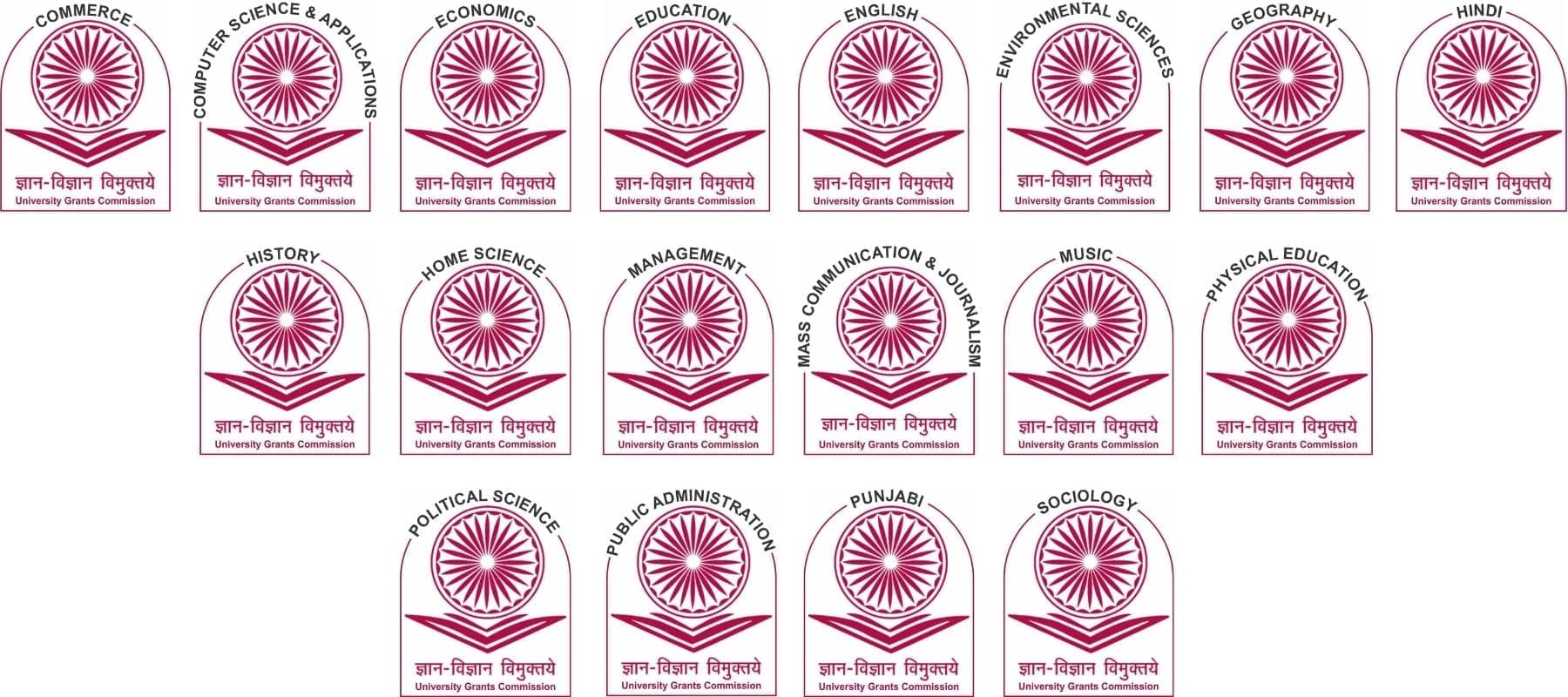
UGC Aspirant May Also Join Mantram for:
- UGC NET Commerce Coaching
- UGC NET Sociology Coaching
- UGC NET Management Coaching
- CSIR NET Life Science Exam Coaching
- UGC NET Hindi Coaching
- UGC NET Paper 1 Coaching
- UGC NET Punjabi Coaching
Mantram Also Provide Coaching for:
FAQ
Q. What are the prospects for economists?
The field of economics is integral to numerous aspects of daily life and global business, ensuring robust job prospects, particularly in private sectors such as consulting services. The analytical skills developed through studying economics are highly valued in various industries.
Q. What are the qualifications needed to succeed in the UGC NET?
Success in the UGC NET requires a well-planned study strategy and dedication. Starting early, ideally six months before the exam and adhering to a rigorous study plan, can significantly increase the likelihood of passing on your first attempt.
Q. What makes studying economics appealing?
Economics combines quantitative analysis with the study of market dynamics, offering a unique blend of mathematics, statistics, and behavioural science. This discipline helps decipher complex economic phenomena and equips students with tools to analyze various data types and monetary policies.





